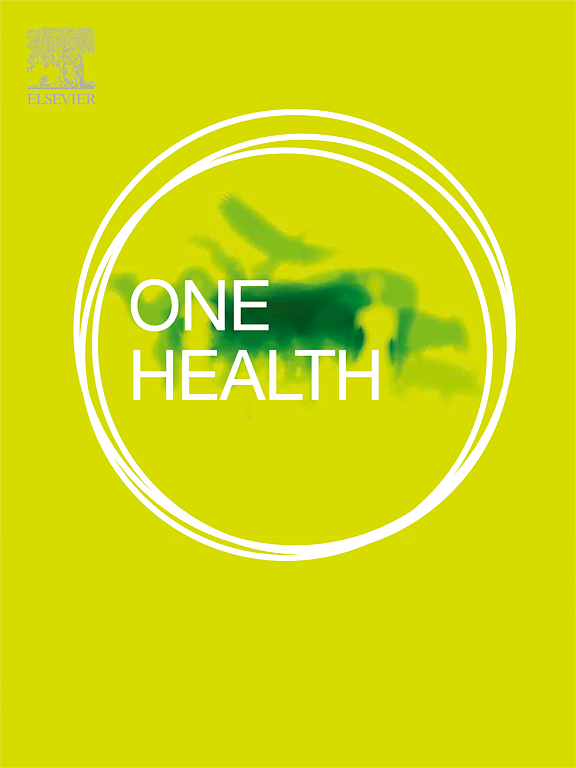Challenges in the surveillance and control of mosquito-borne diseases in Europe and United States. The perspective from public health experts.
IF 4.1
2区 医学
Q1 INFECTIOUS DISEASES
引用次数: 0
Abstract
The complexity of mosquito-borne diseases and the necessity for cross-sector collaboration present significant challenges, requiring changes in laws, policies, and inter-agency agreements. In this qualitative study we purposively selected and interviewed public health managers from the European Union and United States involved in vector-borne disease surveillance and control and asked them about the barriers currently faced when engaging in their activities. The interviewees highlighted the differences in surveillance and control guidelines between the European Centre for Disease Prevention and Control and the US Centers for Disease Control and Prevention which reflect structural political differences between the European Union and United States. The lack of centralisation increases uncertainty in applying mosquito surveillance and control guidance. In addition, limited resources and modelling capabilities hinder effective surveillance and control. The public health agents recognised that community engagement and transparent communication are critical for gaining public support and to succeed in interventions, thus recognition of the values of these collaborations need to be accounted for in disease preparedness. Effective mosquito surveillance and control requires strong organisational bases, coordination among stakeholders, and sufficient resources, as advocate by one health frameworks. Addressing these challenges is urgent due to global trends like climate change and increased international travel, which may heighten the risk of mosquito-borne disease outbreaks.
欧洲和美国在监测和控制蚊媒疾病方面的挑战。公共卫生专家的观点。
蚊媒疾病的复杂性和跨部门合作的必要性构成了重大挑战,需要修改法律、政策和机构间协议。在这项定性研究中,我们有目的地选择并采访了来自欧洲联盟和美国参与媒介传播疾病监测和控制的公共卫生管理人员,并询问他们在从事其活动时目前面临的障碍。受访者强调了欧洲疾病预防和控制中心与美国疾病控制和预防中心在监测和控制准则方面的差异,这反映了欧洲联盟与美国之间的结构性政治差异。缺乏集中增加了应用蚊子监测和控制指导的不确定性。此外,有限的资源和建模能力阻碍了有效的监测和控制。公共卫生机构认识到,社区参与和透明沟通对于获得公众支持和干预措施取得成功至关重要,因此,在疾病防范中需要考虑到承认这些合作的价值。正如一个卫生框架所倡导的那样,有效的蚊虫监测和控制需要强大的组织基础、利益攸关方之间的协调以及充足的资源。应对这些挑战迫在眉睫,因为气候变化和国际旅行增加等全球趋势可能会增加蚊媒疾病暴发的风险。
本文章由计算机程序翻译,如有差异,请以英文原文为准。
求助全文
约1分钟内获得全文
求助全文
来源期刊

One Health
Medicine-Infectious Diseases
CiteScore
8.10
自引率
4.00%
发文量
95
审稿时长
18 weeks
期刊介绍:
One Health - a Gold Open Access journal.
The mission of One Health is to provide a platform for rapid communication of high quality scientific knowledge on inter- and intra-species pathogen transmission, bringing together leading experts in virology, bacteriology, parasitology, mycology, vectors and vector-borne diseases, tropical health, veterinary sciences, pathology, immunology, food safety, mathematical modelling, epidemiology, public health research and emergency preparedness. As a Gold Open Access journal, a fee is payable on acceptance of the paper. Please see the Guide for Authors for more information.
Submissions to the following categories are welcome:
Virology,
Bacteriology,
Parasitology,
Mycology,
Vectors and vector-borne diseases,
Co-infections and co-morbidities,
Disease spatial surveillance,
Modelling,
Tropical Health,
Discovery,
Ecosystem Health,
Public Health.
 求助内容:
求助内容: 应助结果提醒方式:
应助结果提醒方式:


